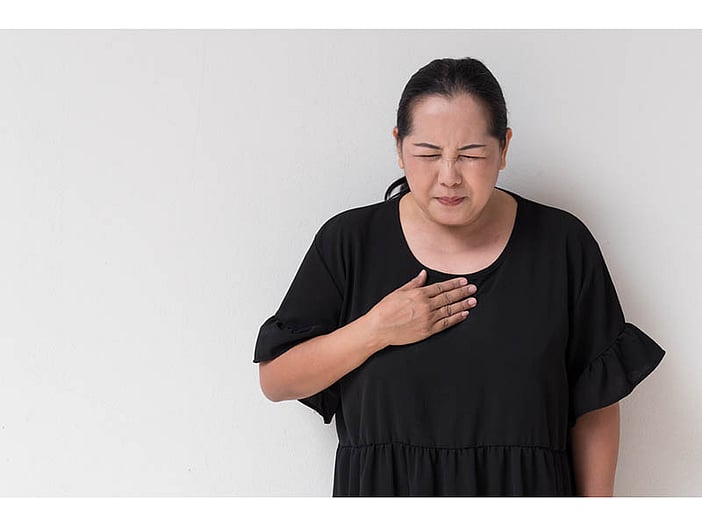Sleeve Gastrectomy + Hiatal Hernia Repair or Fundoplication Reduces GERD

THURSDAY, June 1, 2023 (HealthDay News) -- For patients undergoing bariatric surgery with gastroesophageal reflux disease (GERD) and/or hiatal hernia, sleeve gastrectomy (SG) with concomitant hiatal hernia repair (HHR) and SG with fundoplication (FP) are both effective for reflux resolution and weight outcomes, according to a review published online May 6 in the Journal of Clinical Medicine.
Lidia Castagneto-Gissey, M.D., Ph.D., from Sapienza University of Rome, and colleagues conducted a systematic review and meta-analysis to examine the efficacy of SG + HHR versus SG + FP on GERD remission in patients with obesity. The meta-analysis included 15 studies with 1,164 patients; 554 and 610 underwent SG + HHR and SG + FP, respectively.
The researchers found that in the SG + HHR group, clinical GERD symptoms decreased from 58.5 percent at presentation to 20.4 percent postoperatively. In the SG + FP group, the corresponding decrease was from 64.8 percent to 5 percent. Significantly greater GERD remission was seen in the SG + FP group. The groups had similar weight loss, and the rate of leaks did not differ significantly (0.18 and 0.33 percent in the SG + HHR and SG + FP groups, respectively). Perforations occurred significantly more often after SG + FP than SG + HHR (3.1 versus 0 percent), and the mortality rate was significantly higher in the SG + FP group (0.5 versus 0 percent).
"The superiority of SG + FP in terms of GERD symptom remission might be attributable to the greater pressure of the gastric wrap exerted at the level of the lower esophageal sphincter," the authors write.
Related Posts
AHA News: What Doctors Say About Pregnancy, Vaccines and COVID-19
TUESDAY, Sept. 28, 2021 (American Heart Association News) -- COVID-19 can be bad...
Los niños con autismo también pueden sufrir problemas de memoria
MARTES, 11 de julio de 2023 (HealthDay News) -- Los niños con autismo tienen...
Even Moderate Exercise Linked to Reduced Mortality After Breast Cancer
THURSDAY, Nov. 17, 2022 (HealthDay News) -- Even moderate physical activity is...
Una nueva legislación federal podría reducir los costos de los medicamentos
VIERNES, 12 de agosto de 2022 (HealthDay News) -- Se anticipa que la Ley de la...
